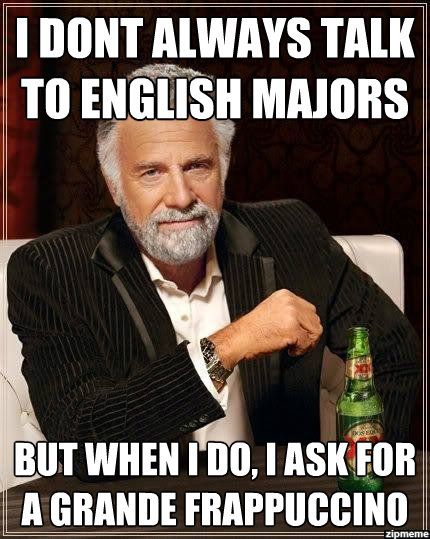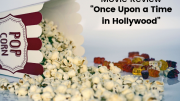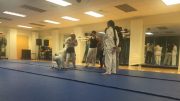Madari Pendas / Staff Writer
An article a few months ago was published in the beacon castigating the FIU English major, using questionable matrices in determining that the major is useless and a waste of time and money. There are many practical skills derived for the study of literature, such as strong analytical skills and strong communication skills; but one does not study English because of some monetary benefit that may be procured, but out of love. The impetus to study English comes from a sensory romance and proclivity for literature; enjoying the beautiful ideas that are put forth, the poetry that penetrates the soul, the prose that resonates within, learning from the suffering and reflections of an author, cultivating the ability to find beauty in the humblest of things. Studying literature is one of the most enriching and satisfying experiences.
The first book I read that made me seriously consider studying English on a collegiate level was Joseph Conrad’s “Heart of Darkness.” The novella dissects racism, imperialism, fear, darkness, and the true identity of men against a hostile world. I remember feeling so intimately involved in Marlow’s journey through the Congo that his paranoia became my paranoia, I could hear the deep bass of the drums from the surrounding tribes, I could feel my civility unraveling as the horrors become more common, more tangible. From Mr.Kurtz’s journal entry “exterminate all the brutes,” and with the transformation of Marlow I understood darkness.
That is another beautiful thing about studying literature. Abstract philosophical concepts and ideas can be explored deeply in a story or poem that allows the reader to engage in a manner not reciprocated by non-fiction works of the same topic. For instance, historical text cover the aftermath of World War I extensively, detailing the industries that flourished, the success of the unified war effort, the baby boom that proceed, and often they will discuss the depression felt by soldiers.
However, reading the “Sun Also Rises” by Ernest Hemingway adds humanity to historical text by detailing the confusion and depression felt by an entire generation. Jake Barnes wandering the streets of Paris, having lost a significant part of himself in the war, unable to sleep, using bullfights and alcohol as a form of escapism allows contemporary audiences to understand that period of history more adeptly and add human elements to their current historical understandings.
Reading Wilfred Owen’s poems gives civilians a better understanding of the atrocities of war, his words:
“Men marched asleep. Many had lost their boots
But limped on, blood-shod. All went lame; all blind;
Drunk with fatigue; deaf even to the hoots
Of disappointed shells that dropped behind.
GAS! Gas! Quick, boys!– An ecstasy of fumbling,
Fitting the clumsy helmets just in time;
But someone still was yelling out and stumbling
And floundering like a man in fire or lime.”
Owen takes the abstractions and vague generalizations of war out of the readers mind and replaces them with vivid, descriptive imagery that depicts the horrors and realities of combat. Literature makes the inaccessible accessible, through different authors and genres stereotypes are dismissed and depictions closer to reality can occur. In a sense literature can create a more informed citizen. A person who does not have the means to travel can visit every part of the world through literature.
The article that disparaged the English major specifically targeted the English program offered at the University . However, the English courses offered at FIU have enriched my understanding of literature, introduced me to authors whom I had never known, and the professors taught with such zeal and zest that it was easy for every student to cultivate a passion for the works being taught.
The first English course I ever took at the University was “Medieval Monstrosity.” In the course we read different monster narratives, like “Bisclavret” and “Yvain the Knight with the Lion” (text that are usually dissected in graduate classes), we did translation from old English to modern English, and read a myriad of scholarly articles on the topics of monsterosity. The professor respected our intelligence greatly and gave us work that demonstrated that, and by the end of the semester most of the students were clamoring for a phd in English.
Another wonderful course that personally enriched my life was a survey of the works of Alexander Pope and John Dryden. The stanza below helps people relate to the world and find communal experiences with people from the past, and instead of fragmenting the world into epoch, these pieces show the unity of human experience.
“May one kind grave unite each hapless name,
And graft my love immortal on thy fame!
Then, ages hence, when all my woes are o’er,
When this rebellious heart shall beat no more;
If ever chance two wand’ring lovers brings
To Paraclete’s white walls and silver springs,
O’er the pale marble shall they join their heads,
And drink the falling tears each other sheds;
Then sadly say, with mutual pity mov’d,
Oh may we never love as these have lov’d!”
This course cultivated the skills of analysis and interpretation, but really expounded on the beauties of the discipline. And having a generation of young persons that can appreciate art and the beauty of poetry has internal value that cannot be measured in terms of income or monetary figures.
The English courses taught at FIU help students develop passion for literature, fostering strong analytical skills which are transferable to any other profession, allows us to connect with all humans and find commonality in shared experiences; create great writers and having strong communications is an essential skill in all facets of life; allows students to visit the most remote places on the planet without ever moving, and it enhances the beauty of the world.
It’s impossible to quantify the benefits received by studying English. How do you measure someone’s sense of awareness or personal enrichment from poetry? Most feelings are ineffable and exist in a realm where words do not penetrate, Like Rainer Maria Rilke wrote these beautiful feelings live “in the dark, in the unsayable, the unconscious, beyond the reach of one’s own understanding.”






Be the first to comment on "A secondary defense of the english major"